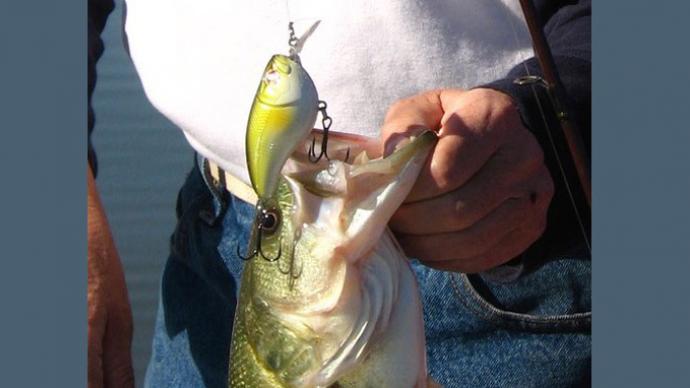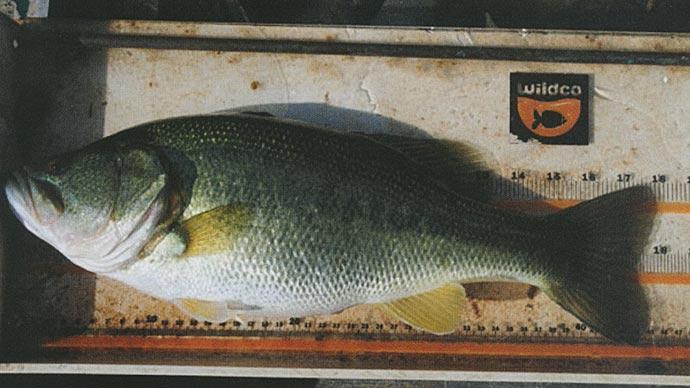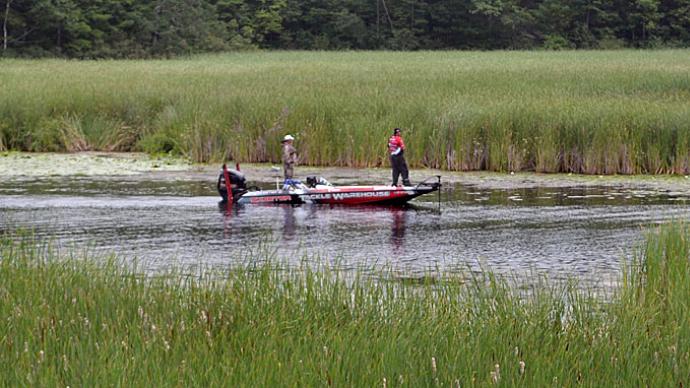Largemouth bass virus, a mysterious malady that has caused major fish-kills along the Atlantic Seaboard and throughout the South, appears to be spreading north through northern Indiana into southern Michigan.
Anglers in both public and private waters have been asked to help prevent the spread of the disease. Reader Dan Paterson of Clayton, MI is more than concerned, saying, "If there was ever a reason not to transfer fish from one body of water to another, this should make it very clear."
Here are excerpts from a news story released earlier this year by the Michigan Department of Natural Resources:
"LANSING-State resource officials today announced that largemouth bass virus appears to be spreading in southern Michigan lakes, and called upon anglers to help contain the disease and protect fish populations.
LMBV is one of more than 100 naturally occurring viruses that affect fish, and is closely related to viruses found in frogs and other amphibians. Its origin and how it is spread are unknown.
There are few outward signs that a fish has the virus. The virus has been found in many lakes where there have not been reports of disease or mortalities of fish. Affected fish usually appear normal, although they may be lethargic, swim slowly and are less responsive to activity around them. Dying fish often are seen near the surface and have difficulty remaining upright.
Upon internal examination, such fish usually will have bloated swim bladders, which accounts for the cause of swimming problems. Red sores or other lesions occasionally may be seen on the skin of the fish, but these are secondary in nature and not part of the virus infection.
The virus is not known to infect humans, and infected fish are considered safe to eat. However, it is recommended that all fish should be thoroughly cooked."
The virus was first identified in Santee-Cooper in South Carolina, following a bass die-off in 1995. Since, the virus has been detected in wild fish in Florida, Georgia, Alabama, Tennessee, Kentucky, Mississippi, Texas, Missouri, Arkansas and North Carolina.
In the autumn of y2OOO, biologists discovered LMBV in Lake George, on the Indiana-Michigan border, the northernmost point the virus has been found. This year, the virus has also been detected for the first time in Illinois.
John Hnath, Michigan DNR fish pathologist, said LMBV appears to infect other fish species, including smallmouth bass, bluegill and crappie, but has caused mortality to only largemouth bass. Most fish mortalities associated with the virus involve other stressors to the fish, including warm water temperatures and heavy fishing pressure."
A national consortium of scientists and fishing clubs has recommended that anglers and boaters help prevent the spread of the virus by taking the following steps:
- Clean boats, trailers, other equipment thoroughly between fishing trips to keep from transporting LMBV, as well as other undesirable pathogens and organisms, from one water body to another.
- Do not move fish or fish parts from one body of water to another, and do not release live bait into any water body.
- Handle bass as gently as possible if you intend to release them.
- Stage tournaments during cooler weather, so fish caught will not be so stressed.
- Report dead or dying fish to state wildlife agencies.
- Volunteer to help agencies collect bass for LMBV monitoring.
Reprinted with permission from Pond Boss Magazine



